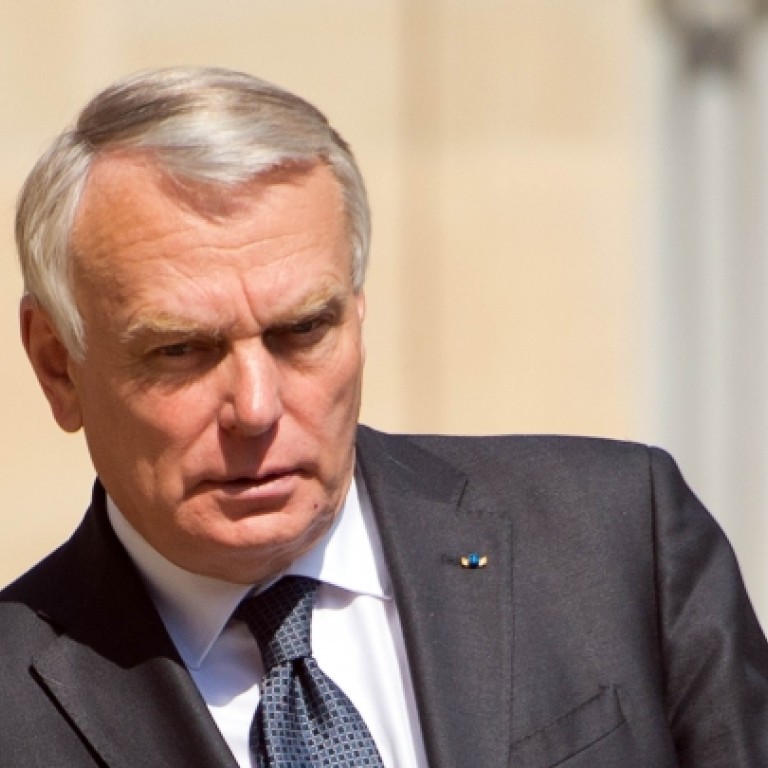
US assails EU push to exclude culture in trade talks
Both Washington and Brussels are hoping that the EU-US Transatlantic Trade and Investment Partnership, which would be the world’s largest free trade accord, will deliver a major boost to growth and jobs.
The United States said Europe’s possible push to exclude films and TV shows from transatlantic free trade talks soon to get under way was not a helpful way to start negotiations.
“We understand there are sensitivities regarding this issue,” a US trade official said of the French-driven effort to protect the EU film industry from unrestricted imports that it fears could be the result of the planned EU-US Transatlantic Trade and Investment Partnership.
However, the US official said in a statement, “There are sensitivities on a number of issues. That’s why it is important to sit down and explore what is possible if we are to produce a good agreement.
“We do not object to governments supporting cultural diversity, including filmmakers, but we do not think carve-outs for new audiovisual quotas before we even begin negotiations are helpful.”
On Friday EU trade ministers meet in Luxembourg to discuss the issue and their approach to the free trade talks, expected to begin in earnest within weeks.
France argues that its prized “cultural exception” should be excluded in the talks, fearing the loss of its cultural assets to US influence and Hollywood’s dominance of the film industry.
French Prime Minister Jean-Marc Ayrault threatened Wednesday to block the talks.
“France will oppose the opening of the negotiations if culture and the cultural industries are not protected, are not excluded,” Ayrault told the French parliament.
Washington and Brussels hope the EU-US Transatlantic Trade and Investment Partnership, which would be the world’s largest free trade accord, will deliver a major boost to growth and jobs.
To get around the problem, the current Irish EU presidency has suggested a compromise: culture and the audiovisual sector would be included in the EU negotiating mandate but it would also be made clear that there would be no change to current quotas and subsidies in any final accord.
An EU source said this was how South Korea had resolved a similar problem when it negotiated its free trade agreement with the United States.
“It was not necessary for South Korea to exclude it to get what they wanted,” the source said.
Below are some of the possible benefits from a proposed Transatlantic Trade and Investment Partnership and some of the issues to be resolved.
POTENTIAL BENEFITS
* A comprehensive deal could boost the EU’s economy by 119 billion euros (HK$1.2 trillion) per year, and the US economy by 95 billion euros (HK$984 billion). That is equivalent to an extra 545 euros per EU household per year, and 655 euros for each US family.
* The United States and the EU already have the largest trade and investment relationship in the world and a free-trade accord could eliminate remaining tariffs.
* A deal would increase US access to the EU’s 500 million consumers. Europe is the second largest destination for US exports. The EU is the biggest investor in the United States.
* Opening public tenders on both sides of the Atlantic would dramatically increase access for companies to bid for contracts. The EU’s public procurement market is worth 2 trillion euros, while in the United States it is about 560 billion euros.
SHARED STANDARDS
* A trade deal would aim to synchronise US and European regulations in areas ranging from car air bags to drugs packaging, lowering the cost of doing transatlantic business.
* Negotiators will aim for regulatory compatibility in the chemical, automotive, pharmaceutical and medical appliances sectors.
* Negotiators will probably seek an ambitious agreement on plant and animal health, as well as food hygiene standards.
* Synchronising rules on safety standards, certification processes and environmental regulations could mean savings of up to 12 billion euros annually for the European Union and 1.6 billion euros for the United States.
TOUGHEST ISSUES
* France wants culture kept out of the negotiations, worried that its system of state support will not be shielded from Hollywood. The European Commission has proposed allowing EU members to keep subsidies and quotas for traditional media, but leave space for US and European companies to compete in the Internet and digital areas.
* Europe’s regulations for artisan products such as cheese are more restrictive than in the United States, and European food and drinks producers are keen for US producers to agree to their rules.
* US lawmakers want Brussels to lower restrictions on genetically modified crops. But the EU trade commissioner says EU regulation will not change even if Brussels and Washington agree a free-trade deal.
* Europe wants to break open the closed US maritime market, which requires transport of cargo between points in the United States to be carried by US-flagged vessels that are at least 75 per cent owned and crewed by US citizens.
Sources: European Commission, US Chamber of Commerce, US-EU High Level Working Group on Jobs and Growth, US Merchant Marine Act
